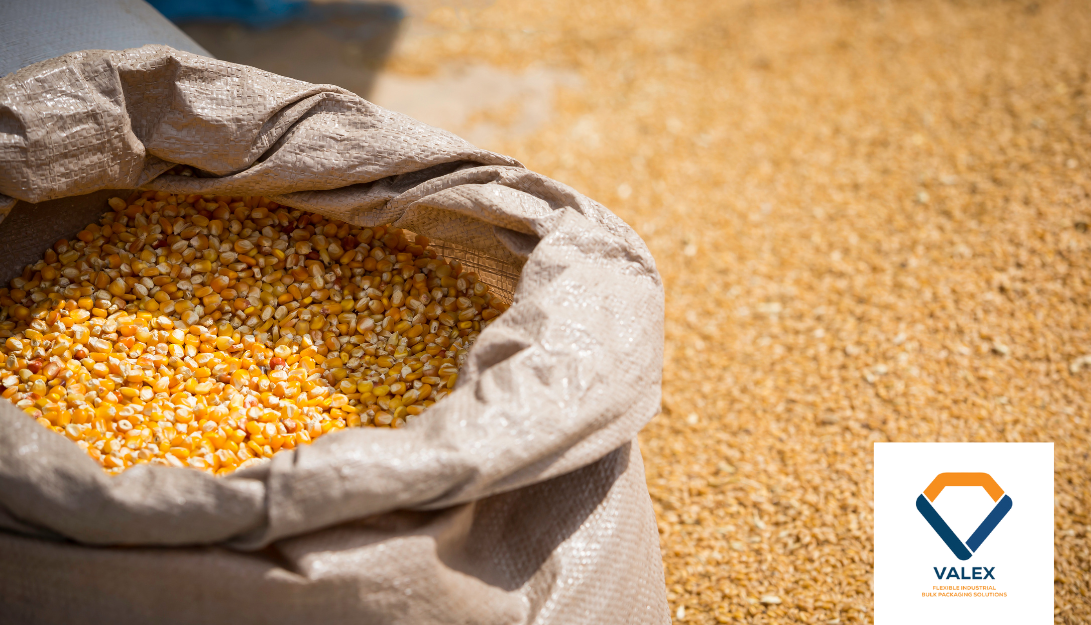When it comes to transporting or storing moisture-sensitive products, choosing the right packaging solution is key. Valex Ventures, a trusted name in bulk packaging, offers a wide range of FIBC bulk bags specifically designed to combat the effects of humidity. These bags ensure that your product remains dry, intact, and free from moisture-related damage throughout the supply chain. Let's dive into how these bags work and how you can maximise their performance.
Excess moisture can cause serious issues in various industries:
When moisture affects these sensitive products, it not only impacts their quality but can also lead to financial losses and legal issues, particularly in regulated industries like pharmaceuticals and chemicals. Therefore, ensuring proper moisture protection during storage and transport is paramount.
FIBC bags are designed to provide superior protection against external factors like humidity. To ensure moisture-sensitive materials stay dry, these bags often come equipped with several features:
Types of Moisture-Proof FIBC Bags
Some common moisture-resistant options include:

These liners and fabrics act as protective barriers, keeping moisture at bay and ensuring the product inside stays dry.
Sealing Techniques for Better Moisture Protection
In addition to selecting the right liner, sealing the FIBC bags properly is key to maintaining moisture resistance. Some effective sealing techniques include:
Together, these sealing techniques offer a comprehensive solution to keep moisture-sensitive products safe during transportation and storage.
1. Choose the Right Liner: It's essential to select the right type of liner based on the product you're storing. For example, food-grade PE liners are ideal for edible goods, while foil liners are more suitable for hygroscopic materials like chemicals or powders. Always assess the level of moisture sensitivity of your product and choose a liner accordingly to ensure maximum protection.
2. Ensure Proper Storage Conditions: Even the best moisture-proof FIBC bulk bags can only do so much if they are not stored in the right environment. Store your bags in dry, ventilated areas and off the ground by using pallets. This helps prevent moisture from seeping into the bags from the floor. If storing bags outdoors or in areas with fluctuating humidity levels, always cover them with tarps or protective covers to shield them from external moisture sources.
3. Rotate Stock Regularly: Following FIFO (First-In, First-Out) inventory practices is crucial. Regularly rotate your stock to avoid extended exposure to humidity, which can happen if products stay in one location for too long. Regular stock rotation ensures that products don't become too vulnerable to moisture and maintains the integrity of your product for a longer time.
4. Inspect Bags Regularly: Routine inspection of your FIBC bulk bags is essential. Look for any signs of wear, damage, or compromised seals. Bags with small tears or broken seals may allow moisture to seep in, so it's important to replace or repair damaged bags promptly. Regular inspections will help prevent unexpected product degradation due to moisture exposure.
Moisture-proof FIBC bags are used across various industries where humidity is a concern:
These examples highlight the critical importance of using the right moisture-proof packaging to prevent damage to sensitive products.
Moisture protection is essential for maintaining the quality and integrity of moisture-sensitive products, especially during transportation and storage. By choosing the right moisture-proof FIBC bulk bags, using effective sealing techniques, and following best practices for storage and inspection, you can safeguard your products from the harmful effects of humidity. Implementing these strategies will not only help preserve product quality but also reduce financial losses and compliance issues, especially in industries like agriculture, chemicals, and pharmaceuticals.
Also read: How to Start Your Own Business with Valex Ventures Franchise Program